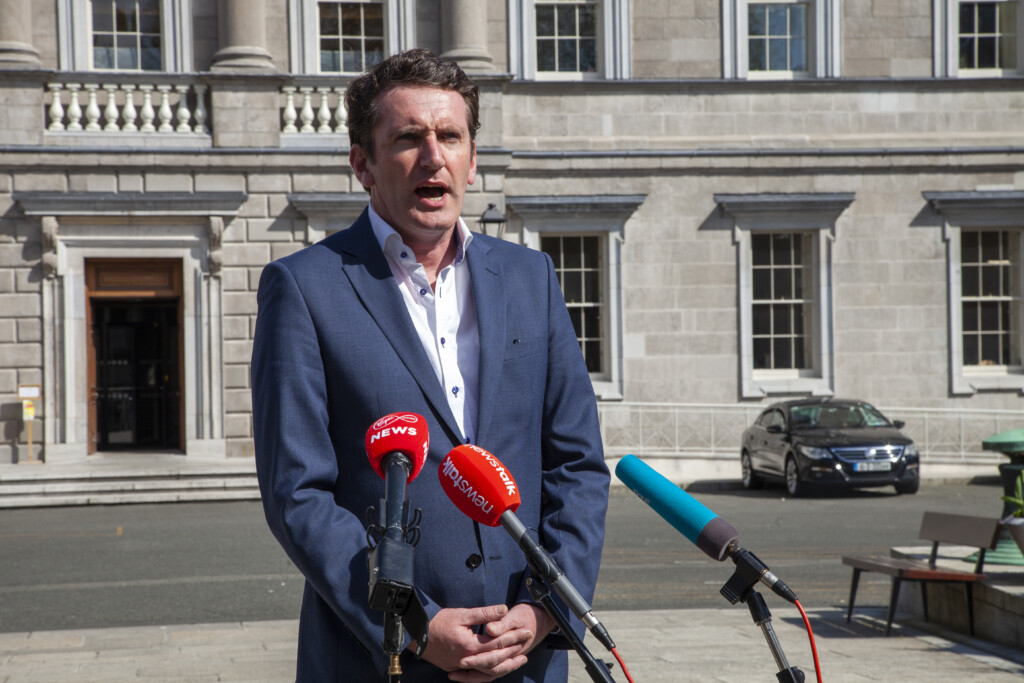As the dust settles on Ireland’s marathon local and European elections, a number of elected reps have called for Labour, the Social Democrats and the Greens to join forces.
One of the prominent voices calling for an alliance of the parties is newly-elected MEP Aodhán Ó Ríordáin, who won Labour’s first European seat since 2009.
Speaking to RTÉ, Ó Ríordáin said “it’s time for people on the centre-left, ourselves, the Social Democrats and the Geens to realise what we can achieve together. I think the idea of being in competition with each other and trying to take each other out and take seats off each other, it doesn’t wash anymore.”
“Fine Gael and Fianna Fáil have decided to stop pretending that there’s any difference between them, and we need to stop pretending that there’s any difference us,” he stated.
Labour leader Ivana Bacik added “we need to align ourselves as a group and as a movement on the centre-left, on the progressive left, and on the environmentalist movement. Because we know and we’ve seen, unfortunately, across Europe, the rise of the far-right, we know what we’re up against.”
Green TD Neasa Hourigan also agreed with Ó Ríordáin, saying that left-wing parties need to “start talking about coalescing” ahead of the next general election.
Hourigan, whose sister Niamh ran for Labour in the Ireland South European constituency, told Virgin Media that people “to see something from the left about being in power and not just purity Olympics.”
If the nationwide combined votes of Labour, the Social Democrats and the Greens were combined, they would add up to 12.3%, above Sinn Féin’s national total of 11.8%.
In Dublin City Council, the combined vote of the three parties equated to 27.2%, just below Fine Gael and Fianna Fáil’s combined 29%.
There is precedent for parties who ran against each other joining up and running as a united front.
In the Netherlands, last year’s general election saw the Dutch equivalent of Labour and the Greens combined to run as GroenLinks, finishing 2nd in the snap election.
The alliance became the biggest party in Netherlands’ European elections last week, winning 8 of the 31 Dutch European Parliament seats.
In France’s 2022 snap election, the French left combined to run under the NUPES banner and are in talks to repeat the list in July’s snap elections.
The French leftist alliance has been overshadowed by tensions between the centre-left Socialist Party, Labour’s French cousins, and La France Insoumise, an unabashed left-wing populist party.
Of course, getting the Social Democrats to run alongside Labour and the Greens is easier said than done, as the party was founded as a breakaway from Labour in 2015 over their enabling of a Fine Gael government.
Dublin North-West TD Róisín Shortall was a Labour TD from 1992 until 2012 before resigning from the party over austerity tensions, and was a founding member of the Social Democrats in 2015.
Dublin Bay North TD Cian O’Callaghan, another founding member of the Social Democrats was a Labour councillor from 2009 to 2013, before resigning from the party over the ongoing coalition with Fine Gael and what he called the “deeply unfair” austerity measures supported by the party.
Considering the Greens are currently in coalition with Fianna Fáil and Fine Gael and the Soc Dems refused to take part in coalition talks with Fine Gael and Fianna Fáil in 2020, it is apparent it would take a commitment from Labour and the Greens to agree not to prop up a future centre-right government.
In a January interview with the Irish Times, Social Democrats leader Holly Cairns said that Labour’s behavior in government between 2011 and 2016 were “not compatible” with her party.
“It’s all well and good to say: ‘Oh they think they have the same policies as us.’ They don’t have the same practices. That is the overall difference between us,” she said.
